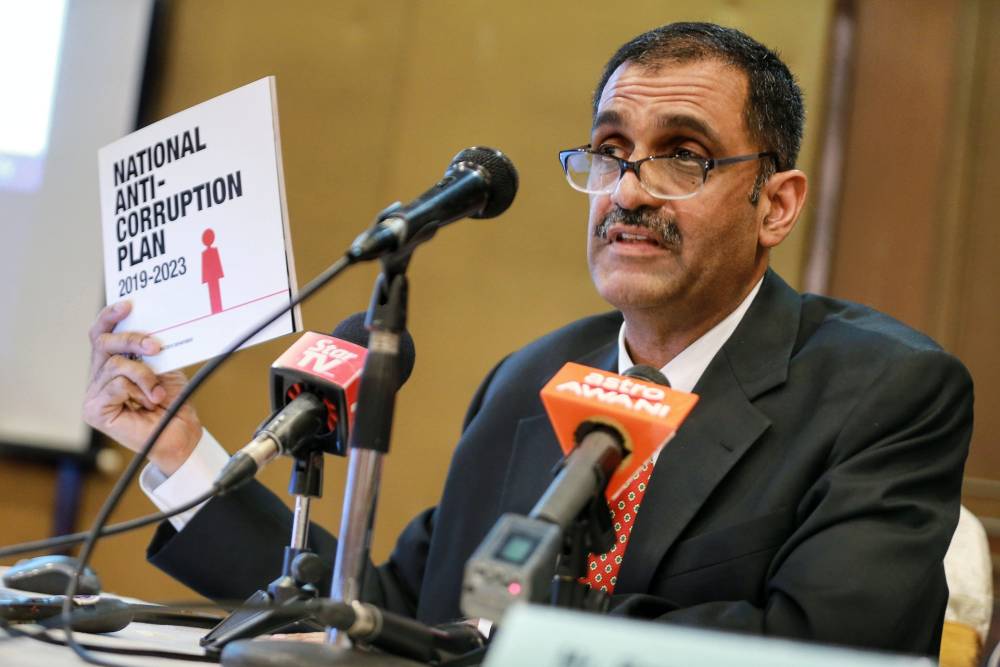KUALA LUMPUR, Jan 23 — Malaysia jumped ten spots in the Corruption Perception Index (CPI) 2019, with the steps taken to deal with high-profile corruption cases and related individuals a main driver.
Transparency International Malaysia (TI-M) president Muhammad Mohan said the country scored 53 points and 51st place globally in 2019, contrasted with 47 points and 61st place the year before.
“This improvement is due to the swift action taken by the Pakatan Harapan government to address the scandals of 1MDB, SRC International, Felda, and Tabung Haji when it came into power,” he said during the conference announcing the release of Transparency International’s CPI 2019 results at the Royal Selangor Club.
Other contributing factors to the rise in Malaysia’s ranking include the arrest of several political figures for corruption and money laundering as well as greater media freedom under the Pakatan government, among others.
Muhammad particularly singled out the government’s commitment in combating corruption with the five-year National Anti-Corruption Plan (NACP) as an excellent move.
“The NACP under the National Centre for Governance, Integrity and Anti-Corruption Centre is a good guidebook for us all, and we hope the government will release periodical updates on the implementation of its 115 initiatives,” he said.
TI-M also made several recommendations on how Malaysia can improve its CPI ranking, beginning with the acceleration of institutional reforms.
“These include making the Malaysian Anti-Corruption Commission more independent, enact political financing laws against money politics which we still lack, and to push for the Independent Police Complaints and Misconduct Commission bill.
“It is believed that by the end of last year, 22 of the 115 NACP initiatives have been completed. But making these completed initiatives public for greater scrutiny and transparency will aid in further improving our standing in the CPI next year,” Muhammad said.
Other recommendations include efforts to ensure the early closure of high-profile graft cases, strong political will for institutional and legal reforms, greater transparency on awarding mega projects, and enacting the Freedom of Information Act across all states to replace the Official Secrets Act.
Malaysia’s CPI score from 2012 to 2019 indicated an initial period of improvement, with 49 points in 2012, peaking at 52 in 2014.
However when the 1MDB issue surfaced and gained public prominence in that year, Malaysia’s subsequent score dropped to as low as 47 points for 2017 and 2018, before climbing to its present score for 2019, in part attributed to the Pakatan government’s victory in the 14th general election on May 9, 2018.
In the Asean region, Malaysia was among the top three, with Brunei and Singapore ranking higher at 35th place with 60 points, and fourth place with 85 points respectively.
Among the top ten Islamic countries, Malaysia was ranked as the fourth highest, tied alongside Saudi Arabia at 51st place with 53 points. Brunei, Qatar, and the United Arab Emirates ranked higher at 35th place with 60 points, 30th place with 62 points, and 21st place with 71 points, respectively.



















